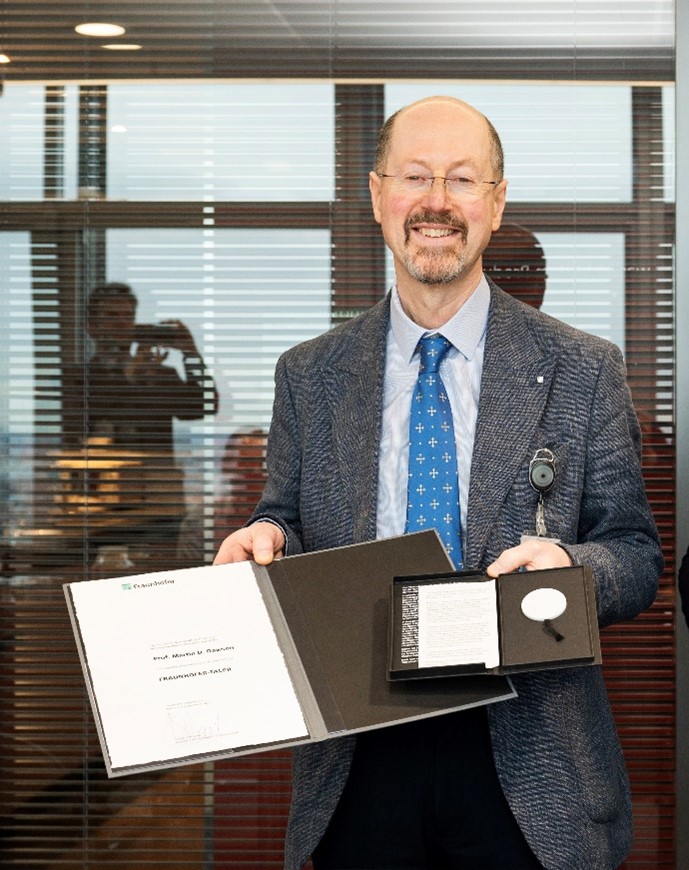Institute of PhotonicsProfessor Martin Dawson awarded the Fraunhofer Taler (Medal)

Professor Martin Dawson awarded the Fraunhofer Taler (Medal)
Professor Martin Dawson was awarded the prestigious Fraunhofer Taler (Medal) in a ceremony held in Munich on 3rd December 2024. This award, presented to Martin on behalf of Fraunhofer’s Executive Board by Executive Vice President Elisabeth Ewen, is a medal of honour for outstanding achievements in applied research and services to the Fraunhofer Gesellschaft.
The award marks Martin’s almost 13 years of service as the inaugural Head of Centre and Scientific Director of the Fraunhofer Centre for Applied Photonics, Glasgow, which is co-located with the Institute of Photonics. Under Martin’s leadership, Fraunhofer CAP has grown to over 70 staff and students with a competitively won portfolio to date of over 285 projects with over 135 industrial partners. Fraunhofer CAP is particularly prominent in the UK’s National Quantum Technology Programme, and in broader areas including laser-based stand-off chemical and environmental sensing and LIDAR.
Professor Dawson has now handed over the Headship of Fraunhofer CAP to his successor, Professor Loyd McKnight, but he will remain actively involved in Fraunhofer CAP as senior advisor in his new role of Director Emeritus and he continues to be Director of Research in the Institute of Photonics.